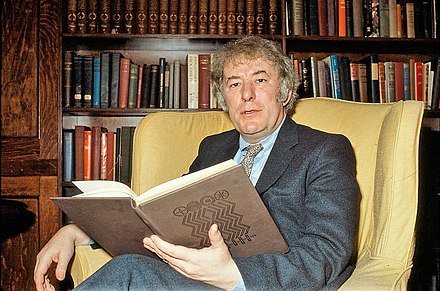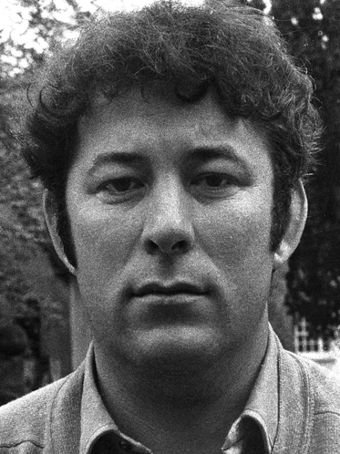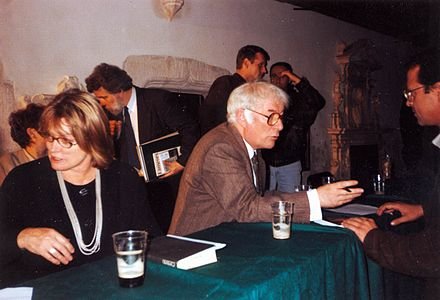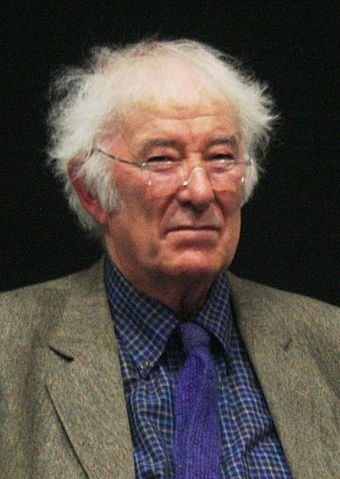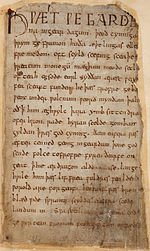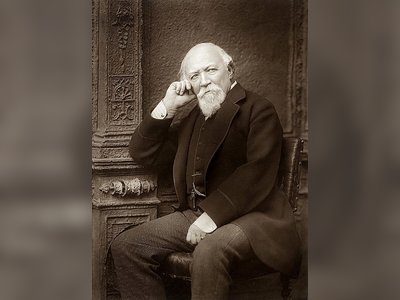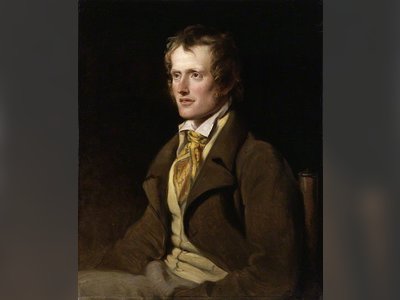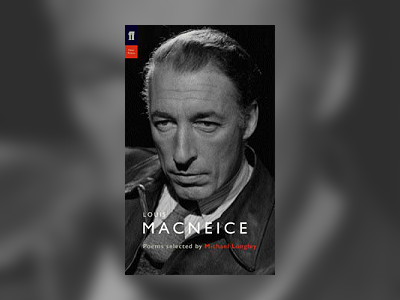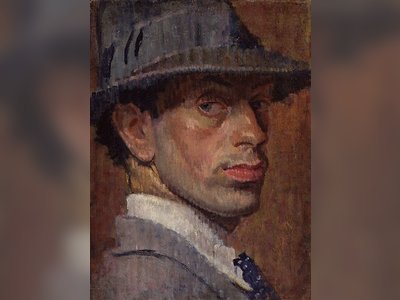British Heritage
Remember, Cherish, Learn.
beta
Seamus Heaney - The Greatest Poet Of Our Age 2013
Contribution to British Heritage.
Seamus Heaney, the eminent Irish poet and playwright, made an indelible mark on British heritage with his profound literary contributions. Heaney's works exude lyrical beauty and ethical depth, celebrating everyday miracles and the living past. He was instrumental in revitalizing the poetic tradition in Ireland and beyond, leaving an enduring impact on the literary landscape. His poems often delve into themes of rural life, family, history, and the struggle for identity. Heaney's poetic genius was widely recognized and admired, as evident from numerous accolades, including the prestigious Nobel Prize in Literature in 1995.
Born on April 13, 1939, in Northern Ireland, Heaney grew up in Bellaghy and developed a deep connection to the rural Gaelic past represented by his father and the industrialized Ulster represented by his mother. His early education at St. Columb's College in Derry exposed him to the world of poetry, igniting a lifelong passion for the art form. Heaney's poetic journey began with his debut collection, "Death of a Naturalist" (1966), which garnered critical acclaim and won several awards.
Throughout his career, Heaney's poetry traversed a wide spectrum of human experiences, evoking emotions and memories that resonated with readers worldwide. His works explored the rich tapestry of Irish history and culture, touching upon themes of conflict, identity, and reconciliation. The depth of his intellect, combined with his unique ability to evoke vivid imagery, established him as a leading figure in contemporary poetry.
Heaney's literary legacy has played a crucial role in shaping British heritage, as his poems continue to inspire generations of poets and readers alike. His profound impact on the poetic landscape has been compared to the likes of W.B. Yeats, and he is considered one of the most significant Irish poets since Yeats. The power of his words to encapsulate the essence of Ireland's history and identity has made his works an integral part of the nation's cultural heritage.
Moreover, Heaney's tenure as a professor at prestigious institutions like Harvard and Oxford helped bridge the gap between the Irish literary scene and the international academic community. He was not only an acclaimed poet but also a respected scholar and teacher, contributing to the dissemination and appreciation of poetry across borders.
Seamus Heaney's literary achievements garnered widespread recognition, and his list of accolades is extensive. In 1995, he was awarded the Nobel Prize in Literature, lauded for his works' lyrical beauty and profound ethical insight. Other notable honors include the Whitbread Book of the Year Award for "The Spirit Level" (2006), the Griffin Poetry Prize (2011), and the David Cohen Prize for Literature (2009).
Heaney's impact extended beyond the realm of poetry, as evidenced by his association with organizations like Amnesty International and his efforts to promote human rights and social justice through his works. The establishment of the Seamus Heaney Centre for Poetry at Queen's University Belfast, which houses a record of his oeuvre, exemplifies the lasting legacy of his contributions to the field of literature.
Seamus Heaney's brilliance as a poet, playwright, and scholar has left an indelible mark on British heritage and the world of literature. His works, infused with eloquence and emotional depth, continue to inspire and resonate with audiences globally. As a Nobel laureate and one of the greatest poets of our age, Heaney's enduring legacy enriches the British literary tradition, reaffirming poetry's timeless ability to transcend boundaries and illuminate the human experience. His name will forever be revered among the luminaries of literature, and his influence will continue to shape the poetic landscape for generations to come.
Legacy and Impact:
Born on April 13, 1939, in Northern Ireland, Heaney grew up in Bellaghy and developed a deep connection to the rural Gaelic past represented by his father and the industrialized Ulster represented by his mother. His early education at St. Columb's College in Derry exposed him to the world of poetry, igniting a lifelong passion for the art form. Heaney's poetic journey began with his debut collection, "Death of a Naturalist" (1966), which garnered critical acclaim and won several awards.
Throughout his career, Heaney's poetry traversed a wide spectrum of human experiences, evoking emotions and memories that resonated with readers worldwide. His works explored the rich tapestry of Irish history and culture, touching upon themes of conflict, identity, and reconciliation. The depth of his intellect, combined with his unique ability to evoke vivid imagery, established him as a leading figure in contemporary poetry.
Contribution to British Heritage:
Heaney's literary legacy has played a crucial role in shaping British heritage, as his poems continue to inspire generations of poets and readers alike. His profound impact on the poetic landscape has been compared to the likes of W.B. Yeats, and he is considered one of the most significant Irish poets since Yeats. The power of his words to encapsulate the essence of Ireland's history and identity has made his works an integral part of the nation's cultural heritage.
Moreover, Heaney's tenure as a professor at prestigious institutions like Harvard and Oxford helped bridge the gap between the Irish literary scene and the international academic community. He was not only an acclaimed poet but also a respected scholar and teacher, contributing to the dissemination and appreciation of poetry across borders.
Success and Recognition:
Seamus Heaney's literary achievements garnered widespread recognition, and his list of accolades is extensive. In 1995, he was awarded the Nobel Prize in Literature, lauded for his works' lyrical beauty and profound ethical insight. Other notable honors include the Whitbread Book of the Year Award for "The Spirit Level" (2006), the Griffin Poetry Prize (2011), and the David Cohen Prize for Literature (2009).
Heaney's impact extended beyond the realm of poetry, as evidenced by his association with organizations like Amnesty International and his efforts to promote human rights and social justice through his works. The establishment of the Seamus Heaney Centre for Poetry at Queen's University Belfast, which houses a record of his oeuvre, exemplifies the lasting legacy of his contributions to the field of literature.
Conclusion:
Seamus Heaney's brilliance as a poet, playwright, and scholar has left an indelible mark on British heritage and the world of literature. His works, infused with eloquence and emotional depth, continue to inspire and resonate with audiences globally. As a Nobel laureate and one of the greatest poets of our age, Heaney's enduring legacy enriches the British literary tradition, reaffirming poetry's timeless ability to transcend boundaries and illuminate the human experience. His name will forever be revered among the luminaries of literature, and his influence will continue to shape the poetic landscape for generations to come.
- Seamus Heaneyen.wikipedia.org
